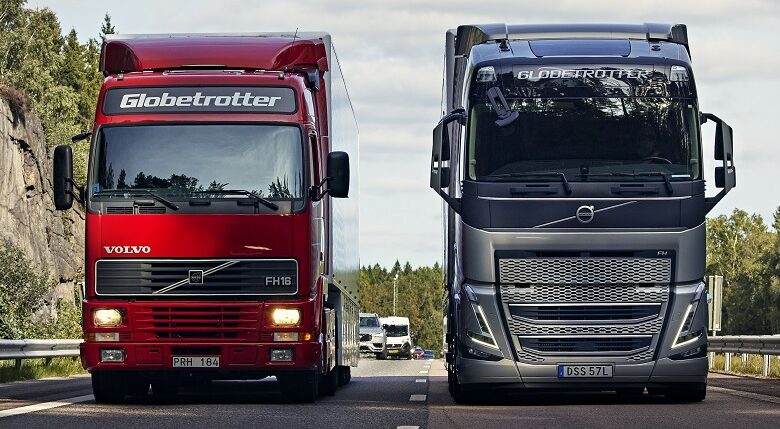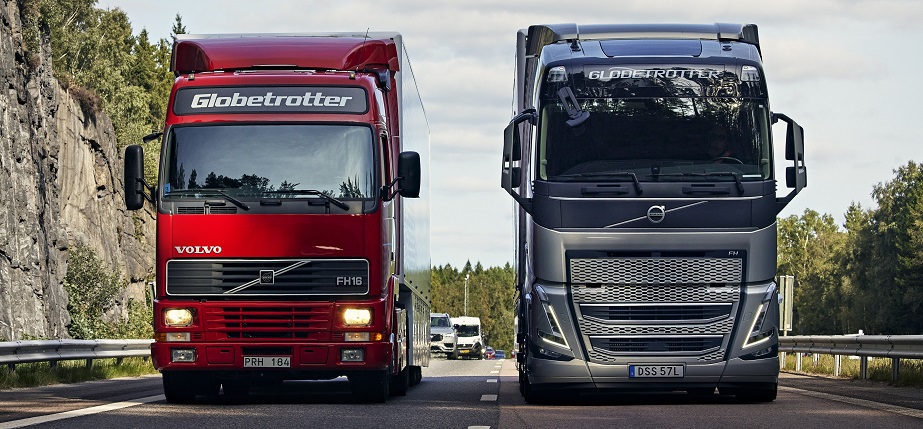Volvo FH: A textbook case for successful truck range

The cult status of Volvo FH is attributed to its remarkable reliability, cutting-edge technology, driver comfort, and exceptional safety, evolving consistently over three decades spanning five generations, to capture the hearts of drivers and fleet owners worldwide.

How often do you find a brand’s most sold product is its flagship, most-premium offering? More so in the commercial trucking industry where budget, ‘no-frills’ products top the charts, it is astonishing to see that Volvo brand’s most sold truck selling over 1.4 million units in 80-plus markets across the globe is its quintessential ‘FH’ series. The truck known for its trait of setting new standards in its segment is celebrating 30 years this month.
Soon after its launch in 1993, the FH (that stands for Forward control High entry) redefined the concept of ‘modern truck’ and became an instant hit in the European trucking market. More than just being the preferred choice among drivers and fleet operators, the truck continued to transform the global truck market by dictating new benchmarks on key aspects of engineering, comfort, reliability and safety for the next three decades. The Volvo FH is certainly a classic example of how a truck maker’s pro-active push for excellence and innovation can make its product the ‘king’ of the segment.
Also Read: Volvo FM420 LNG 4×2: Gas Power entering India
In particular, the Volvo Truck’s ingenious packaging of the truck with cutting-edge technology and advanced features that enhance performance, safety, and driver comfort is worth mentioning. May it be the aerodynamic exterior design, ergonomic cabin and driver workspace, chassis and powertrain engineering, or the vehicle’s innovative technologies, the manufacturer had integrated all of those aspects into the very discussions at the drawing board. Any improvements to these aspects of the truck were seen in relation to the larger focus on reliability, durability and safety, while legacy issues were effectively cropped at every generational updates of the truck.
Further, Volvo’s engineering and design has been versatile and flexible enough to suit different haulage applications and market requirements, something that our Indian truck makers lack in their product platforms. As a result, the truck is able to withstand demanding conditions and ensure consistent performance in all operational scenarios, while also able to support multiple configurations and advanced technologies such as active safety and driver-assist systems, battery-electric and gas-powered engines (along with diesel), I-shift AMT, Volvo Dynamic Steering, and so on.
Lastly, and more importantly, Volvo hardly built trucks to meet the price-points of various markets, but instead engender frugality and efficiency at the design and engineering stages of the vehicle development. Therefore, the final products are never toned-down to meet certain customer price-points, thereby compromising on essential technologies and equipment, which otherwise would have contributed to high productivity of the driver or operator and achieve lower TCO. In other words, the FH’s premium, flagship stature has helped the truck to bring out the best of the packaging to offer optimum reliability, productivity, and safety.
In India, Volvo Group introduced the FH in its very first-generation avatar back in 2002. Needless to say, the truck was way ahead of its time in the domestic market, with its pricing being sky-high for Indian operators. It remained as a niche ‘import’ vehicle (although it was locally assembled in Karnataka) meant only for ‘exotic’ applications.
Also Read: Volvo FM, FH LNG-powered Trucks on par with Diesels
Even today, Volvo Trucks continues to be labeled as a ‘pricey’ brand, which is now offering only FM (the FH’s minor sibling) and FMX range of trucks in India. Despite the tremendous evolution of the local trucking industry, operators including large corporate fleets continue to miss the edge that premium trucks can offer to their operations, including the positive effects they can have on driver retention and safety, in the long-run.
*An edited version of this story first appeared in Drivers Duniya print magazine’s September-November 2023 edition.



